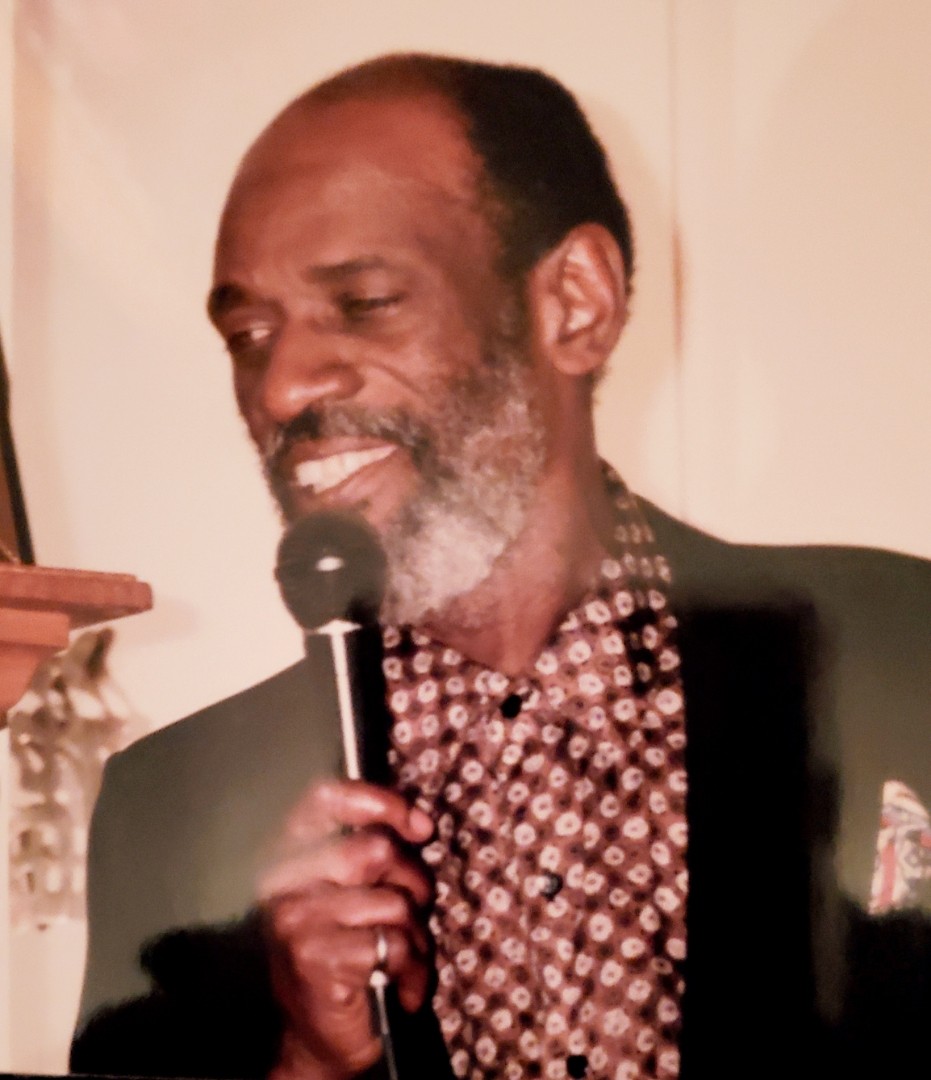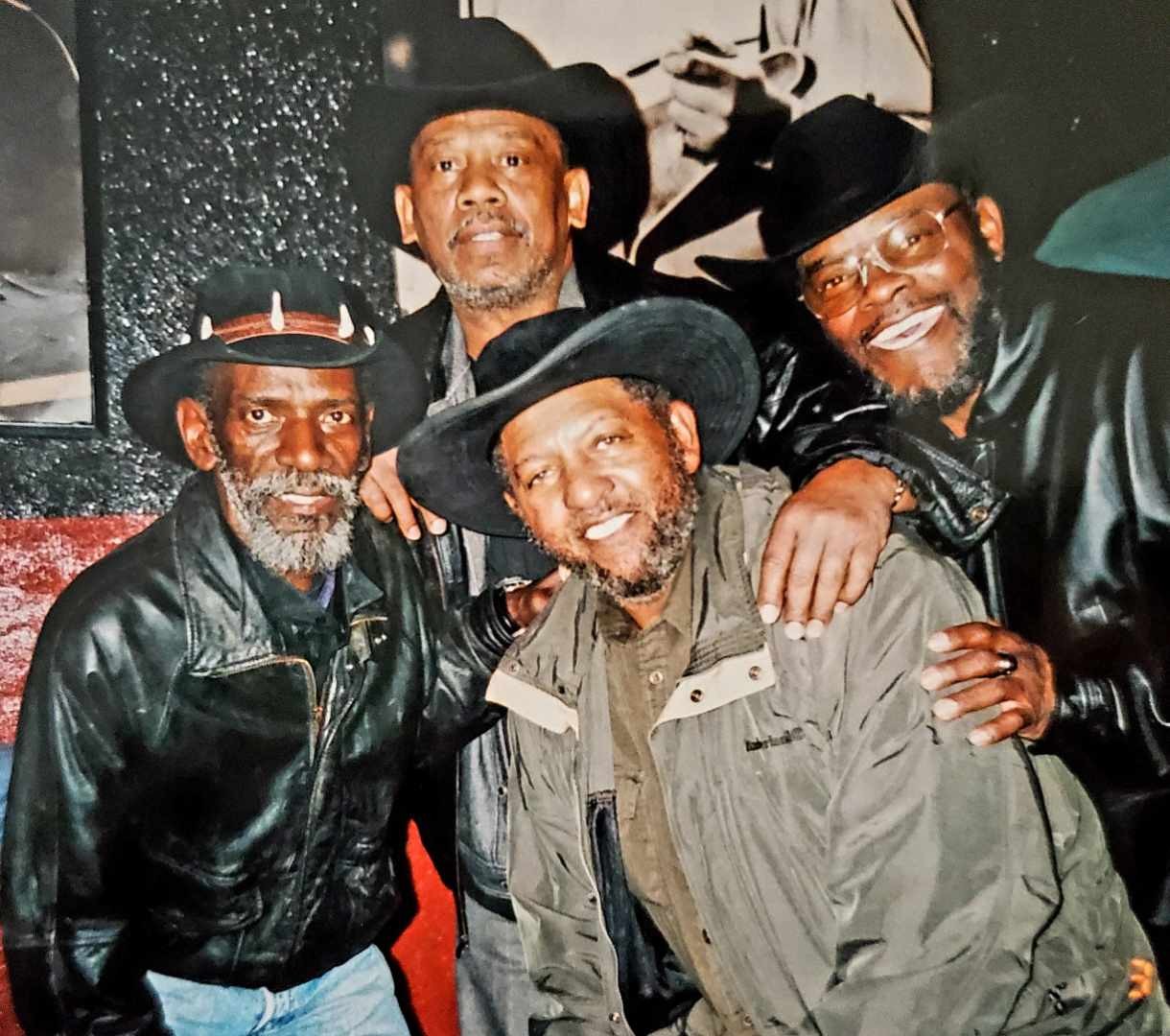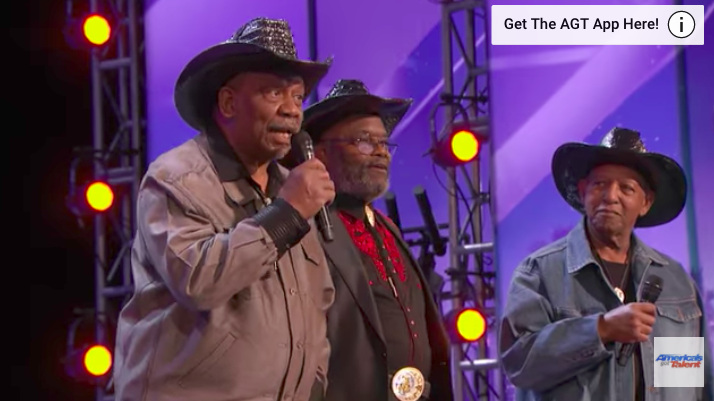There was a time when Drew Erwin performed his original songs on an electric guitar, with a lead guitarist, keyboard player, bass player, and drummer behind him.
Times have changed. Simplicity is key.
“Normally, it’s just me and a guitar,” Erwin says. “A microphone. Most of the time I’m playing acoustic.”
He likes it that way. “I don’t have to rely on anybody else. I’m just kind of doing my own thing.”
He’s learned to savor his independence. Erwin, 21, first appeared on the music scene in 2012, when he was a semi-finalist on America’s Got Talent. The experience isn’t one of his favorite memories. He was told what to wear and what song to sing. He didn’t win. But he didn’t stop singing.
Erwin scaled things down when he began playing a weekly gig at Silly Goose, downtown. The owner saw one of his videos on YouTube and invited him to play. It turned into a regular Friday gig. “It’s been, seriously, probably the best thing for me as far as getting better and working at stuff,” Erwin says. “My ear has gotten so much better. I’ve really conditioned my voice, because I’m playing for three hours down there.”
Erwin also credits the University of Memphis music department, where he will graduate with a music business degree this spring. On November 5th, as the headliner at the fourth annual This Is Memphis festival at Clayborn Temple, he’ll perform selections from his new EP, Covers in a Bar, with a 16-piece string ensemble. The event, which showcases members of U of M music department, is produced by the university’s Blue Tom Records.
An old upright piano was the impetus for his new EP. “I had just purchased a 1960s Wurlitzer upright piano. I really liked the way that it was all beat up and banged up.”

“Covers in a Bar,” the title track, was the first song Erwin wrote for the EP. “I was teaching guitar lessons out in Collierville. I got home, made a cup of coffee, and just sat down at that piano. That was the first thing I came up with.” The autobiographical song alludes to his America’s Got Talent experience and is “about not wanting to die in Memphis playing covers in a bar.”
He liked the simplicity of his voice backed by one musical instrument and wanted to replicate that on the EP. “Instead of really geeking out, trying to make some big production, I just went on the floor live. Me and my guitar. I did the guitar and vocal live. No click track or anything like that. Then just overdubbed little stuff. But for the most part, it’s just acoustic guitar and a vocal, then some piano overdub and some electric guitar overdub on some of the songs.”
Erwin began “learning different chord progressions and what works melodically. I just kind of got a clearer, ‘Hey. I can do this. Just me. I don’t need a band.’ And honestly, I feel like I can rope people in better if it’s just me. When I take away all the distractions.”
The recordings are “all incredibly personal,” he says. “Like if a song’s about somebody, they know that that song’s about them. I wanted you to feel like you were in the room listening to the record. It was a live take, and instead of worrying about the production and stuff, it was more about the delivery and how I was saying things — even if I was flat on the note. If the note was emotional, I was like, ‘I’ll just keep that there.'”
Songwriting is more comfortable these days, he says. “When I was writing songs, I was trying to write a hit song or something. I just got out of the whole ‘I want to write catchy hooks’ and just switched to, ‘I want to write real things that I’m emotionally invested in and can be passionate about when I’m singing about them.’ I just want to do away with all the bullshit and just write things that mean stuff to me.”
Football took precedence over music when Erwin was growing up in Arlington, Tenn. He began playing the game when he was 5 years old.
He also loved music. “I think my favorite thing in elementary school was going to music class. Sports was always after school, but while I was at school I’d rather be hanging out doing that kind of stuff.”
Lisa Smith, his elementary school teacher at Macon-Hall Elementary School in Cordova, was an influence. “She made music so much fun. We had the little xylophone and glockenspiels and stuff. I remember in elementary school we had weeks that would be dedicated to the Beach Boys. And weeks that would be dedicated to the Beatles.”
Erwin was in a talent show when he was in the fifth grade. “I sang a song by The Fray. It might have been ‘Cable Car.’ But I remember everybody went nuts because nobody even knew that I liked to sing.
“I was always aware that I could carry a tune. But I never imagined that, literally, my daily life would revolve around it 24-7.”
The King figured into his musical life at one point. “I remember in the fifth grade we did a live wax museum. The little card I drew was Elvis. So, I had to dress up like Elvis and learn all about Elvis.”
In sixth grade, Erwin and other students wrote songs on their laptops. “They would pull up GarageBand and Apple loops and we would make songs: ‘Everybody make a song and we’ll play it at the end of class and we can see whose song we like best.’”
Erwin continued to play football at Arlington HIgh School. He played strong safety. But music wasn’t far away. “I always had software on a laptop and I would record and make little raps, make songs for fun. That’s when I realized I had a passion for the production side of things. That’s where I got a lot of my first exposure to recording.”
During a football game his sophomore year, Erwin shattered his hand and had to have a metal plate put in. Since he couldn’t play football, he picked up his guitar and began singing and writing songs.
He put a video he made of himself singing John Mayer’s “Slow Dancing in a Burning Room” on YouTube. Without telling him, his parents sent the video to “America’s Got Talent.” Erwin was chosen to appear on the show.
He wanted to play guitar and sing the song he put on the video, but one of the show’s producers said they wanted him to play piano – because they already had a guitarist on the show – and sing “Torn” by Natalie Imbruglia. In keeping with the boy band image Erwin felt they were going for, someone with the show even selected his outfit, which included a tight red shirt – something Erwin never would wear.
Judges included Howard Stern, Sharon Osbourne and Howie Mandel.
Erwin lost to a bird act.
Back in Arlington, Erwin continued to play football. His dream was to play for Holy Cross or Harvard, but during summer workouts going into his senior year, he tore his hamstring while overworking himself running the 40-yard dash. He wasn’t able to attend the key camps he wanted to attend. He gave up football.
Erwin enrolled at University of Mississippi at Oxford. “ In high school a lot of my identity was rooted in the fact that I was the captain of the football team. I was that guy. I was good at sports. I was one person. Just the sports guy. I was just all about sports and being competitive. Then I got to college and realized none of that matters anymore. I wasn’t on the football team. That’s such a big school nobody cares who you are. It was kind of a struggle to figure out who I was and who I wanted to be.
“I didn’t have football to do. I tried to do the whole partying, fraternity. Make friends that way. And I couldn’t. The thing that I fell back on was I still had a guitar. The only thing that I did was sing in my dorm at night and play guitar. I had a Yamaha keyboard.”
Erwin called up singer/songwriter/musician Ben Callicott. “I knew that he was at Memphis. I didn’t really know him, but I had his phone number. He was like, ‘Yeah, dude. I started my first semester. It’s kind of cool so far. You should think about it.’ And the next thing I knew Ben Yonas called me on the phone.”
Yonas, a U of M music business professor, persuaded Erwin to transfer to U of M.
Fitting in with the other music students wasn’t easy at first. “I was so new to the music crowd. I had come from a completely different world in high school. Trying to figure out what was cool or what kind of guitar do I need to play to fit in. Or what clothes should I wear. And this and that.
“I was trying to impress people for an amount of time. I just kind of realized I’m not this crazy good guitarist. I’m not this bluesy guy. I like to tell stories when I write. I just happen to have a guitar and sing on top of them.”
And, he said, “I was never really truly confident in my abilities as a musician and a songwriter because I never felt like it was truly who I was. I always felt like this football guy trying to pretend he knew what he was doing. Now, I’ve been doing it long enough and put in the hours and I’m just confident who I am. This is what I’m going to do with my life. There’s no doubt in my mind.
“I think I’m just a lot more comfortable now with who I am. Just because of the experiences. I’ve pretty much found myself over the course of my college career. I’m not pretending to be anybody anymore.”
That’s a testament to U of M. “If it weren’t for University of Memphis I wouldn’t speak the language. Because in high school i was never in choir. I was never in a band. I was always doing football. Now I don’t go a day without doing something with it. That’s what’s so cool.
“I’m not timid anymore. I’m not nervous of what somebody who is musically superior to me is going to think. Because it’s like, ‘OK. That’s just your opinion. There are other people who really enjoy what I’m trying to do right now.’”
The weekly Silly Goose gig also helped him, Erwin said. “I feel like a lot of this falls back on playing somewhere Friday night. Because there are nights when it’s not super fun or rewarding and people aren’t into it. But then there are nights when people can’t get enough of it.”
Being on “America’s Got Talent” doesn’t come up as much, Erwin said. “But I still feel like it follows me around.”
He cringes when he sees the video of the show. “Just because I was so not good. It’s just so green and so cheesy and so corny. But then part of me is like, ‘Yeah, but it was also five or six years ago. And that was my first time performing. And, yeah, I can cringe when I look at it.’ But I’m also like, ‘I’m confident in myself now that it’s like that video doesn’t define me.’”
Does Erwin ever wish he was never on “America’s Got Talent”? “All the time. I really do. But it’s one of those things. I met cool people through that. And it’s just a good way to get your foot through the door. But I also at the same time I just hate that if you Google my name it’s inevitable you’re going to find that video.”
If he could turn back the time, Erwin would do things differently on “America’s Got Talent.” “I would get up there and do what I wanted. I wouldn’t let them manipulate me. And then five years down, if it still gave me that clout and star quality, I wouldn’t be ashamed of it because it was authentically me. Even if Howard Stern trash talked me on live TV I wouldn’t care because it would be truly who I am.”
But, he said, “If it weren’t for that show, I don’t think Ben Yonas at the University of Memphis would have ever known about me and called me up on the phone while I was at Ole Miss asking what I was interested in. You know what I’m saying? Everything happens for a reason.”
Erwin will graduate with a degree in music business this spring. “I plan on pursuing my solo career the rest of my life. Writing songs. But, also, I’ve probably sunk – at least right now just in my college years – at least 30 grand into my own studio equipment and microphones. I probably have 13 guitars. I’m just really into the whole recording side of things. I’m already working on a couple of different records for people. I want to be a producer. I want to work with people who are just themselves and back it up with the songs that they write.”
Erwin wants to stay in Memphis. “Memphis is cool. Especially with local music. Really. There’s a lot of buzz that’s going on and people are getting excited in the community. I don’t want to be one of those guys who, as soon as I get done, goes to try to work for some office in Nashville. Or try to go up there and write songs. I like this city. And I’ve made my living in this city. I’m invested in it. I’m here.”
"Covers in a Bar" from Michael Donahue on Vimeo.
Drew Erwin is Keeping It Simple
 courtesy Harold Thomas
courtesy Harold Thomas  courtesy Harold Thomas
courtesy Harold Thomas 
